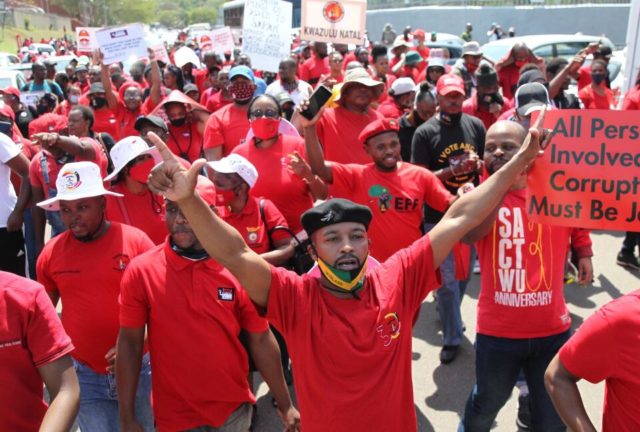Concerns that the Labour Appeal Court ruling against a public sector wage increase is a threat to labour relations and the collective bargaining process
Durban – Unions have raised concerns that the Labour Appeal Court ruling against a public sector wage increase is a threat to labour relations and the collective bargaining process.
The case against the State was launched in June and brought before the court earlier this month after the government refused to implement increases for the final year, 2020/21, of the three-year collective wage agreement, arguing that it had insufficient funds and had suffered financial losses as a result of the Covid-19 pandemic.
The unions had wanted the court to compel the government to increase wages and honour clause 3.3 of resolution 1 of 2018 of the Public Service Co-ordinating Bargaining Council collective agreement.
Clause 3.3 states that the salary adjustment for the period April 2020 to March 2021 effective from April 1 2020 from salary levels 1 to 7, be projected at Consumer Price Index (CPI) plus 1%; level 8 to 10 be projected at CPI plus 0.5%; and level 11 to 12, the highest earners, at projected CPI. The projected CPI is determined by the Treasury.
In a counter-application, the minister of finance had sought relief that clause 3.3 be declared invalid as it argued that the collective agreement had been concluded in contravention of certain subsections of Public Service regulations that state that the relevant government department must have sufficient funds to cover the costs involved in the agreement or have received a commitment from the Treasury to provide additional funds.
The Minister of Public Service and Administration and his department, who were respondents in the case, claimed the wage increases would cost the fiscus R37.8 billion.
In a judgment handed down on Tuesday, the court ruled that the enforcement of clause 3.3 would be unlawful.
The court found that the collective agreement had been concluded in contravention of the subsections of the regulations.
It said it was evident from the court papers that the cost of the collective agreement could not be covered from the budget of the Department of Public Service and Administration, and that the Treasury had not provided a written commitment or agreement to provide additional funding.
It said from this finding, there was no need to deal with the application regarding the increases.
“Once it is found that clause 3.3 of Resolution I of 2018 infringed the mandatory legal requirements governing the conclusion of the collective agreement by the government, it follows that there is no need to deal with the application,” read the judgment.
The court also rejected the proposal by the unions that the government could implement the wage increases in a staggered approach.
“Under the present financial circumstances, it does not appear to be just and equitable to order the government to expend significant and scarce financial resources on employees whose jobs are already secured and whose salaries have been paid in full,” read the judgment.
Cosatu said the union’s preliminary view was that the judgment had implications for one of the fundamental elements of South Africa’s Labour Relations mechanism, which was the collective bargaining agreement.
“We will take a decision next week whether we should appeal against the judgment in the Constitutional Court,” said the convener of the joint mandating committee, Mugwena Maluleke.
The committee includes public sector trade unions Denosa, Popcru, Nehawu, Pawusa, PSA, Sadtu, Saepu, and Samatu, which are organised under Cosatu.
“Given the magnitude of this matter, we will allow the individual unions through their internal processes to intensively reflect and pronounce on their position after consultation with their members,” said Maluleke.
The Mercury







